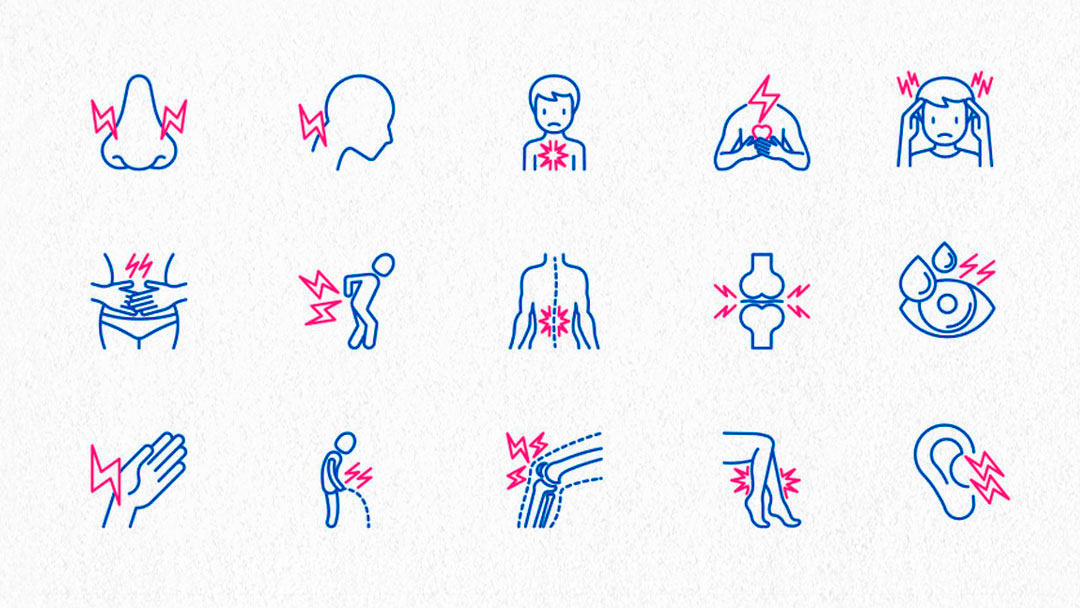Reasons for back pain are diverse, and unfortunately, many causes are work-related. Not just from jobs that involve lifting, carrying or reaching. The fact that so many people work with computers, often inadequately supported or positioned, makes spinal pain a frequent reason to visit a doctor.
However, lifestyle also plays a part in the number of people with back pain. Weight management issues, spending long periods seated, lack of exercise and even gaming can result in musculoskeletal (MSK) pain in the lower back.
Also, there are health problems that cause back pain, such as arthritis and cancer, or issues with your internal organs and even infections.
Symptoms of chronic back pain
Chronic pain means it’s persistent or comes back regularly, or you can’t stop pain with traditional pain medicines.
Feeling back pain can involve stiffness, soreness or intermittent discomfort in one side or centrally, or a general ache that is hard to relieve when you are sitting, standing, walking or lying down. Sometimes all those things are true!
Can doctors help with back pain?
Finding a cause for back pain opens up options for pain relief and ways of preventing it from coming back or getting worse.
If the pain is particularly severe, your GP may refer you for tests with an MSK specialist or neurologist, to explore muscle, bone or spinal cord issues, due to injury or age, for example.
They can also explain options for pain medications and recommend pain management devices.
However, often all that is needed is assessment from a physiotherapist to strengthen and stretch the muscles in the lower back and core.
Important guidance on self-managing back pain includes ways to avoid further strain and exercises to improve back strength and flexibility, or even sleeping positions to relieve back pain at night.
The starting point is to make an appointment to discuss back pain with a multilingual London GP at Oval.



